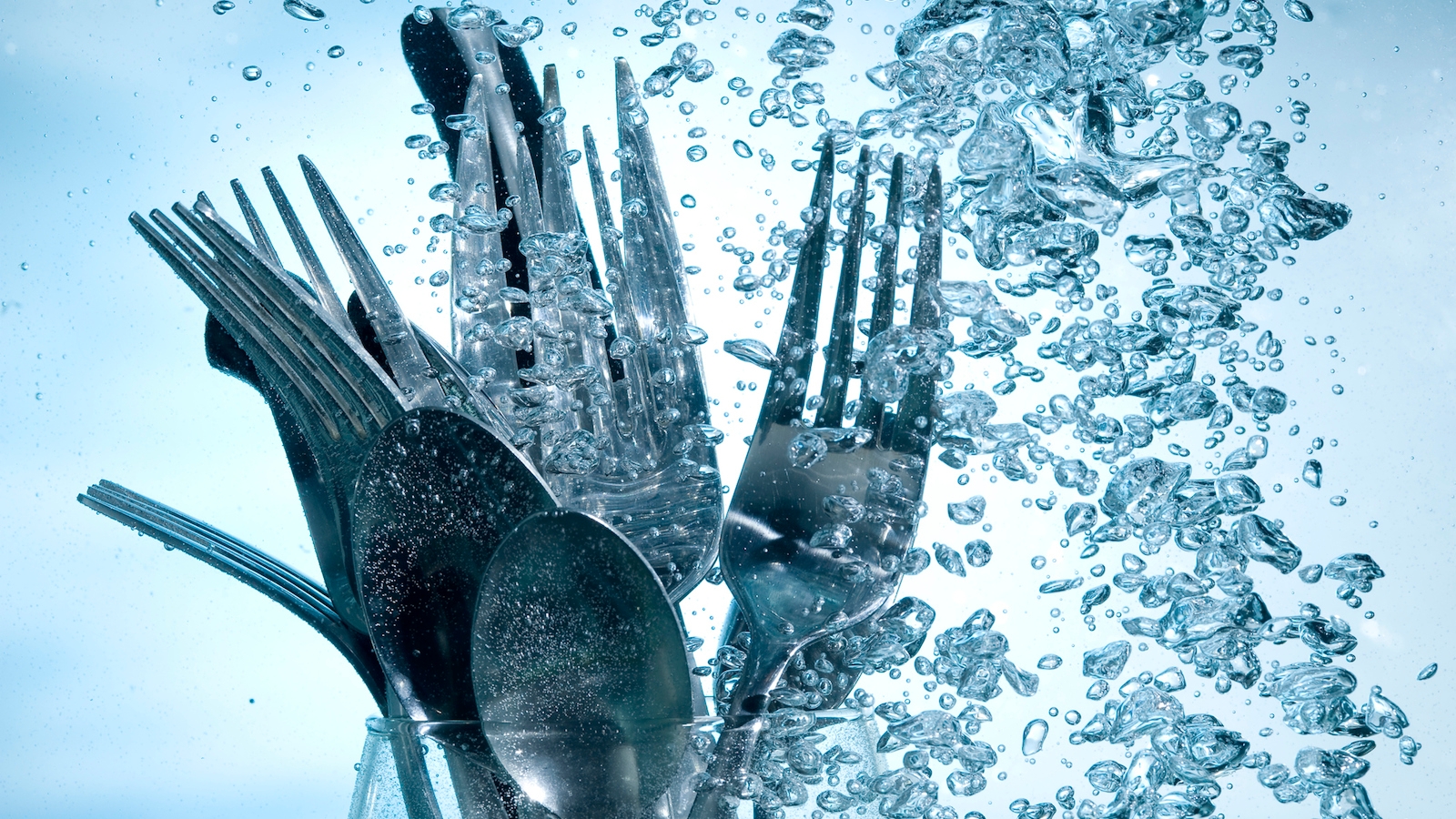According to Jewish law, pots, dishes, and utensils that are used throughout the year absorb leaven (hametz) and therefore may not be used on Passover. The Talmudic tractate of Pesachim discusses the types of dishes that may be made for Passover, the deadline for ing them [which means making them kosher], and the question of the use after Passover of dishes that had not been made kosher for Passover.
Today, in traditional households, it is customary to have special dishes that are used only during the Passover festival. However, vessels used during the year may be used for Passover if they undergo the process of kashering, thus purging and cleansing them of any and all leaven they may have absorbed.
Following is a brief summary of the laws related to the kashering of utensils for Passover. For particular concerns and questions, one should consult his or her rabbi.
1. Cooking utensils are kashered by boiling, while those used for broiling over an open fire must be heated until they are red hot or until they become so hot that a piece of paper will be singed if touched to the utensil (Code of Jewish Law, Orach Chayyim 451:4, 5).

Help us keep Jewish knowledge accessible to millions of people around the world.
Your donation to My Jewish Learning fuels endless journeys of Jewish discovery. With your help, My Jewish Learning can continue to provide nonstop opportunities for learning, connection and growth.
2. Utensils used only for cold food may be kashered by rinsing (Code of Jewish Law, Orach Chayyim, 451:22).
3. Utensils to be kashered must first be thoroughly cleansed (Code of Jewish Law, Orach Chayyim 451:3) and should not be used for at least 24 hours (Rama on Orach Chayyim 452:2). They are then immersed in a container filled with boiling water. Some add a red-hot stone to the water so that the heat will be retained–and in the case of a large vessel that cannot be immersed in another, so that the water overruns the rim and cleanses the outside as well. The utensils are then rinsed in cold water (Code of Jewish Law, Orach Chayyim 452:6-7).
4. The kashering should be completed before 10 o’clock in the morning on the 14th of (Code of Jewish Law, Orach Chayyim, 452: 1).
5. Earthenware may not be kashered, because it is porous and cannot be completely purged (Code of Jewish Law, Orach Chayyim, 451:1).
6. Glassware should be soaked in water for 72 hours with the water changed every 24 hours (Code of Jewish Law, Orach Chayyim, 451:26).
7. Knives, forks, and spoons are kashered in the same way as other metal utensils (Code of Jewish Law, Orach Chayyim, 451:3). If the handles are of wood or some other material is attached to the blade, kashering is not effective because particles of food may penetrate the joints in such a manner that they can never be removed. If the handles are of material that is welded to the blade so that no particles of food can penetrate, they may be kashered.
8. Tables, closets, and cupboards that have been used for leaven are kashered by pouring hot water over them (Code of Jewish Law, Orach Chayyim 451:20).
9. It is customary not to kasher utensils used for the kneading of dough (Rama in Orach Chayyim 451:17).
Excerpted with permission from Every Person’s Guide to Passover (Jason Aronson, Inc).



